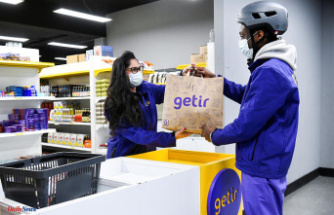They do not expect Trump to face charges at this stage.
It is not unusual to charge a corporation, and not its top executives. Federal and state prosecutors have a long history filing criminal charges against corporations, for the same reasons that prosecutions are brought against people.
Penalties and fines can be imposed on criminal charges. These penalties can sometimes amount to billions of dollars. They also affect the company's ability to operate. In some cases, they may even lead to the demise of the company.
These can be used to encourage cooperation between the company and individuals who have violated the law, or to communicate to the industry that corporate crimes will be not tolerated.
What are the charges being considered?
Grand jury proceedings are secret, and the Manhattan district attorneys' office declined to comment. Ron Fischetti, a Trump Organization lawyer, said to The Associated Press that prosecutors are interested on fringe benefits given to company executives like free cars and apartments or help with tuition payments.
While it is not illegal or unusual for companies to offer such perks to highly valued executives, in some cases these benefits may be considered income for tax purposes.
It could be illegal if an employee doesn't pay income taxes on these benefits, even if the company knew about it and took steps to help him evade taxes.
Former Republican President says he has done nothing wrong but is being unfairly targeted politically by Democrats.
The Trump Organization is a large corporate entity that oversees hundreds of partnerships and companies worldwide. It also controls real estate licensing and hospitality businesses. These include everything from luxury Trump Hotels Washington to golf clubs.
WHY CHARGE A COMPANY RATHER THAN THE PEOPLE WHICH RUNS IT?
Prosecutors seeking to stop illegal activity in a company often pursue individuals.
Sometimes however, prosecutors can force cooperation and accelerate industry change.
Prosecutors may also discover that the illegal actions taken by one entity have harmed other businesses and companies, their employees, and the general public.
Sometimes, it is difficult for prosecutors to act because it could cause harm to innocent employees and other businesses.
For example, simply announcing that a corporation is facing charges could cause it to close down and result in people losing their jobs.
How do PROSECUTORS DECIDE IF A CORPORATION SHOULD BE CHARGED?
A corporation can be charged if it is found to have committed illegal acts that are widespread and so prevalent that it is difficult to treat.
It is also important to consider how long people have been acting badly and what the corporation has done to stop them.
Many companies choose to cooperate in order to avoid prosecution. This helps to identify and expel those who have committed crimes, and suggests ways to prevent future criminal behavior.
If a company refuses to cooperate or makes changes, they will likely be charged by the authorities.
Are COMPANIES SUSPECTED OFTEN?
People aren't as affected as businesses. However, being charged can prove costly and even fatal for a business.
2013 saw BP plead guilty to manslaughter and pay a record $4Billion in criminal penalties and fines related to the deadly explosion at Deepwater Horizon's drilling rig. The explosion killed 11 workers and drained 134 million gallons of crude oil into the Gulf of Mexico. The oil spillage also contaminated beaches and killed hundreds of thousands marine animals. It also ruined tourism-based economies in Florida and Louisiana.
A federal judge approved a settlement for civil charges in 2016 that cost the company more than $20 billion. It was described by the Justice Department as the largest ever civil settlement with one entity and an environmental settlement in American history.
After 85,000 workers were fired by Arthur Andersen, a Chicago-based accounting firm, in 2002, corporate prosecutions began to decline. The conviction of Arthur Andersen was eventually overturned by the U.S. Supreme Court.
Preet Bharara, the then-Manhattan U.S. attorney, spoke out in 2014. He cited results in corporate prosecutions, including a jury verdict against Bank of America, deferred criminal charges for JPMorgan Chase & Co. regarding Bernard Madoff’s massive fraud, deferred charging Toyota Motor Corp. with respect to how it handled a rapid acceleration issue in some vehicles, and a guilty plea from SAC Capital in a case of unprecedented Insider Trading.
Bharara stated that "we view with more and greater skepticism all the breathless claims about catastrophic consequences made companies large and small." "Effective deterrence sometimes demands that institutions are punished because it is sometimes the institution that has failed."












